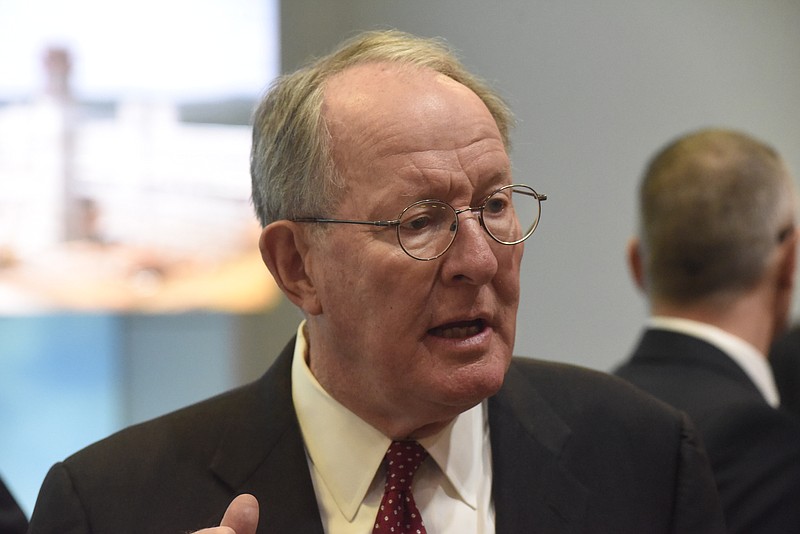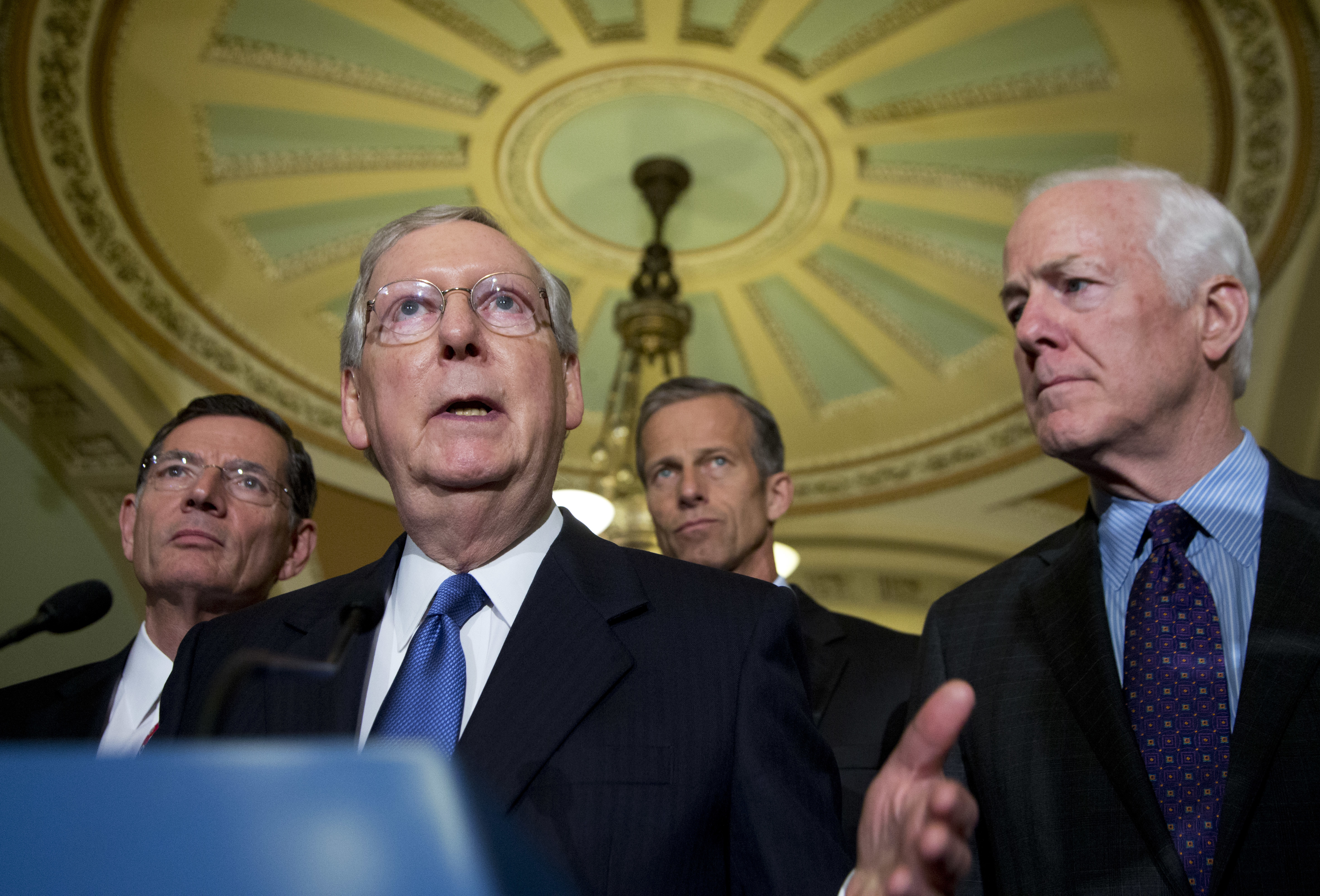WASHINGTON - The Senate on Thursday approved a $37.5 billion measure to fund energy and water programs next year, the first of the 12 spending bills lawmakers must approve to keep the government operating.
On a vote of 90-8, senators backed the legislation that would fund the Energy Department as well as infrastructure projects administered by the U.S. Army Corps of Engineers and Bureau of Reclamation. Spending on energy and water programs beginning Oct. 1 would increase by $355 million over current levels.
Supporters said the measure would strengthen U.S. nuclear deterrence, promote energy security and improve flood-control projects nationwide. The legislation includes a pilot program to allow storage of nuclear waste at private facilities, such as one proposed in western Texas.
The bill must be reconciled with a version of the bill being considered in the House.
Sen. Lamar Alexander, R-Tenn., chairman of a subcommittee that oversees energy and water spending, praised the bill as "proof that the appropriations process is working" in the Senate. The vote marked the first time the Senate has approved a stand-alone bill to fund energy and water programs since 2009.
Senate Majority Leader Mitch McConnell, R-Ky., has repeatedly made an orderly appropriations process his No. 1 goal for 2016. It is a key element of his election-year effort to show voters that Republicans can govern.
"The American people have been frustrated in recent years over the dysfunction they see in Washington, and the biggest symbol has been the inability ... to do the basic work of government," McConnell said, referring to the 12 spending bills that fund the government.
The energy and water bill "took a little longer than we had hoped, but we're completed at record early time," McConnell added.
The bill was slated for approval last month, but was delayed in a partisan fight over a Republican effort to undercut last year's international Iran nuclear deal.
Sen. Dianne Feinstein of California, the senior Democrat on the energy and water subcommittee, praisedAlexander's leadership on the bill and said the two lawmakers "take great pride in getting things done."
Feinstein had expressed sharp irritation with freshman Republican Sen. Tom Cotton of Arkansas, who proposed an amendment that would have barred the U.S. from using taxpayer dollars to buy any more Iranian "heavy water."
The Obama administration bought 32 metric tons of heavy water from Tehran last month, an $8.6 million deal that helped Iran meet the nuclear agreement's terms. Heavy water is not radioactive but has research and medical applications and can also be used to produce weapons-grade plutonium.
Feinstein said Cotton's amendment had threatened to undo months of work on the spending bill. She expressed relief that the measure was finally approved.
"We are trying to set an example on this floor by working things out," she said.
The legislation would fund a pilot program to relocate radioactive waste from shuttered nuclear power plants to a storage site near Midland, Texas. The project would provide a partial solution as lawmakers try to resolve a decades-old dispute over storing nuclear waste at a repository in Yucca Mountain, Nevada. The Yucca site has never opened amid fierce opposition from Senate Minority Leader Harry Reid, D-Nev., and other lawmakers.

